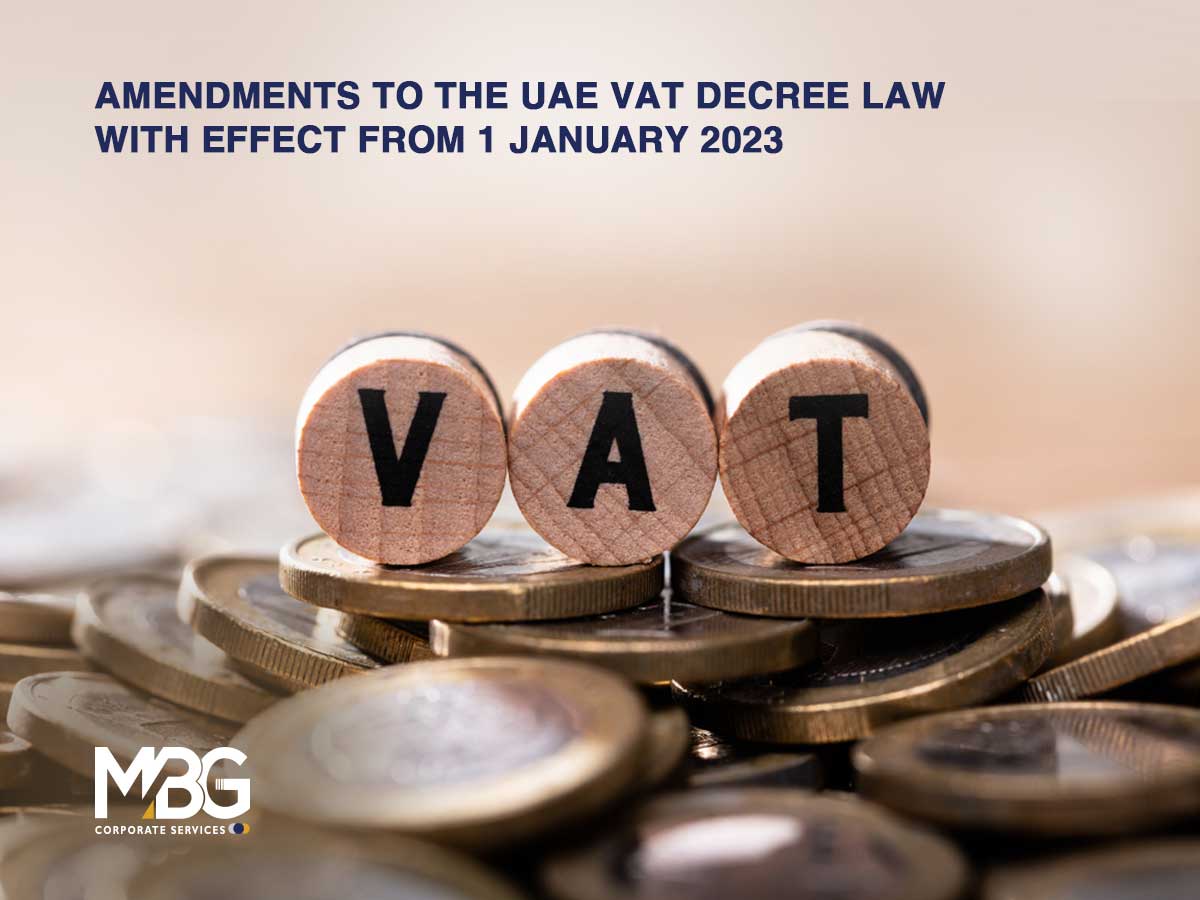Latest Amendments- Statute of Limitation on Amendment/ Revision of VAT Returns
December 22, 2022

On 26th September, 2022 Ministry of Finance, has amended the Federal Decree Law No. 8 of 2017 and replaced it with 18 of 2022 on VAT returns with effect from 1st January, 2023.
One of the major and important change which can be relevant for many companies in UAE is the introduction of Article 79 (bis) - Statute of Limitation which will be effective from 1st January, 2023.
Currently, Article 42 of Federal Law No. (7) of 2017 on Tax Procedures governs the provisions on Statute of Limitation which is replaced by Article 46 of Federal Decree-Law No. 28 of 2022 on Tax Procedures with effect from 1st March, 2023 in order to make it in line with Article 79 bis of Decree Law.
As per Clause 5 of the Article 79 (bis) of the Decree Law, it stipulate that no Voluntary Disclosure may be submitted after the expiration of 5 years from the end of the relevant Tax Period effective 1st January, 2023.
Further, Article 79 (bis) of the Decree Law allows, in some situation, VAT Audit by the FTA to be conducted even after the expiration of 5 Years. Generally, once, the period expires of the five years, the FTA is precluded from taking actions such as commencing of an Audit, or issuing a Tax Assessment. However, pursuant to the amendment in the Decree Law, which describes the exception from the general rule.
How this will impact the taxpayer?
- No taxpayer will be able to file Voluntary Disclosure after expiration of 5 years from end of the relevant Tax Period.
- FTA can conduct Tax Audit after expiration of 5 years also.
- Potential Penalty, in case of filing Voluntary Disclosure after FTA Audit is initiated, is significantly higher than the penalty to be levied if taxpayer files Voluntary Disclosure on his own. This difference is due to the increment in fixed penalty as well as interest as per the amendment in Cabinet Decision 49 on amendment on administrative penalties.
The FTA encourages the submission of Voluntary Disclosure by taxpayers who may have violated the provision or who believe that a mistake was made. A proactive approach to failures or mistakes is necessary for avoiding a penalty. A Voluntary Disclosure should be made by a taxable person to notify the FTA of an error or omission in their tax return or tax refund application.
It is a matter of question, on how a business can find errors/mistakes in already filed VAT Returns. A business can go for a VAT Audit review to understand the mistakes in the submitted VAT returns. VAT Audit-Review by the FTA Registered Tax Agents can help you to find all the errors/mistakes/omissions in your VAT returns.
Eventually, this exercise will minimize the risk of fines and penalties in case of a Tax Assessment by the FTA. It will also ensure that you do not create VAT issues for your customers which can adversely affect your commercial relationship.
How MBG can help you?
MBG Corporate Services has assisted numerous clients in finding non-compliances through VAT Health Checks & filing the Voluntary Disclosure forms. Our team of VAT experts guides you throughout the process and also after the VD application is submitted.
With a thorough understanding of business sectors, we can assist your company to apply within the stipulated 20-day time frame for discovering the error. We also guide you at every step even after the application submission. With due diligence, company can prevent the rejection of applications and receive VAT Refunds on time/ or save company from any potential vat penalty exposure.








